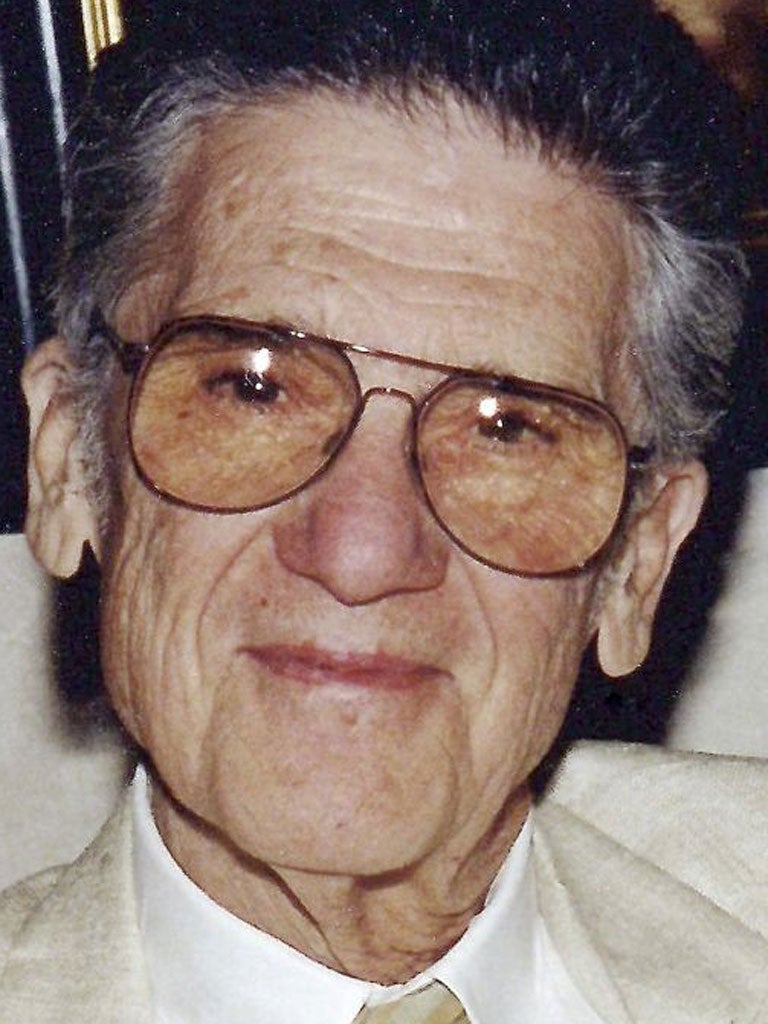Lee Pockriss: Songwriter famed for his novelty hits

Lee Pockriss was one of the secret weapons in the pop business," says the singer and fellow Brill Building composer Paul Evans. "He wrote a lot of hit songs and yet nobody knows his name." While that is true, Pockriss's successes tended to be with novelty songs, notably "Itsy Bitsy Teenie Weenie Yellow Polkadot Bikini".
Lee Pockriss was born in Brooklyn in 1924 and studied music at New York University. He served as a cryptographer for the US air force and then in 1950 won a competition for a new composition from the American Federation of Music Clubs. As he wanted to be a professional songwriter, he associated with the songwriters and music publishers around the Brill Building in New York. In 1958, he wrote an infectious song, "Catch A Falling Star", with the lyricist, Paul Vance, which was released as a single by Perry Como as a double-header with Burt Bacharach and Hal David's "Magic Moments". The single topped the charts in the US and the UK. Another of their compositions, "Thank You Pretty Baby", became one of Brook Benton's romantic hits.
Paul Evans often recorded demonstration records for Pockriss and one song, "My Heart Is An Open Book", written with Hal David, became a US hit for Carl Dobkins Jr. When Evans recorded the demo for "Seven Little Girls (Sitting In The Back Seat)", written with Bob Hilliard, they liked his voice so much that they decided not to pass it as planned to the TV host, Merv Griffin, and released Evans' own version, which again was a transatlantic hit. The B-side, "Worshipping An Idol", had some popularity its own right.
Paul Vance had a young daughter, Paula, and when he took her to the beach in a swimming costume, he came up with the lyric for "Itsy Bitsy Teenie Weenie Yellow Polkadot Bikini". Pockriss supplied the catchy melody but they hawked it around for six months until it was recorded by 16-year-old Brian Hyland, who recalls, "We had cut 'Don't Dilly Dally, Sally' but Kapp Records wanted something stronger for the A-side. Paul and Lee had shown 'Itsy Bitsy Teeny Weeny Yellow Polkadot Bikini' to a lot of singers but no one wanted to do it. Kapp thought it was right for me and got really excited about it. It was a No 1 hit in America which meant that I could stop riding on the subway and buy some Martin guitars."
In his 1961 film, One, Two, Three, Billy Wilder included a scene where soldiers torment a victim by playing him Hyland's record incessantly. In 1990, the song was revived by Bombalurina featuring Timothy Mallett and topped the UK charts. Hyland followed his single with another Vance and Pockriss novelty, "Four Little Heels", but it only reached No 73 in the US, and Hyland wanted to move away from novelties.
In 1960, Pockriss adapted a German tune as "Calcutta" for Lawrence Welk and his Orchestra, another US No 1. Anita Bryant made the Top 10 with "In My Little Corner Of The World", and two American successes, "Kookie Little Paradise" (Jo-Ann Campbell) and "Jimmy Girls" (Johnny Tillotson), were successfully covered by British artists, Frankie Vaughan and Ricky Valance respectively.
In 1962, Pockriss was commissioned to write for the actress Shelley Fabares who was starring in the sitcom The Donna Reed Show. He and Lyn Duddy came up with "Johnny Angel", another US No 1. Successes were harder to come by during the British Invasion but Pockriss had success with "Tracy" for the Cuff Links in 1969 and "Playground In My Mind" for Clint Holmes in 1973.
Among his other songs were "Dommage, Dommage" (Engelbert Humperdinck), "Pregnant Again" (Loretta Lynn) and "Leader Of The Laundromat" (the Detergents). A tense emotional ballad, "House Without Windows", was recorded by Ray Peterson, Roy Orbison, Gene Pitney and Cliff Richard, and he was unlucky not to have a hit with it. He also wrote several songs for Sesame Street and for the animated film The Phantom Tollbooth (1969). He wrote the score for The Subject Was Roses (1968) with Martin Sheen and Patricia Neal and the 1986 remake of Stagecoach.
Pockriss's ambitions lay in musical theatre. In 1960, he wrote Ernest In Love with Anne Croswell, but it only had a brief off-Broadway run. In 1963, they wrote Tovarich, which fared better and won Vivien Leigh a Tony. Other musicals include Bodo, set in the 12th century (1983), and Conrack (1987). His 1969 jazz age musical Gatsby was not performed until this year, when its score was heard in concert.
Lee Julian Pockriss, songwriter: born Brooklyn, New York 20 January 1924; married; died Bridgewater, Connecticut 14 November 2011.
Join our commenting forum
Join thought-provoking conversations, follow other Independent readers and see their replies
Comments
Bookmark popover
Removed from bookmarks